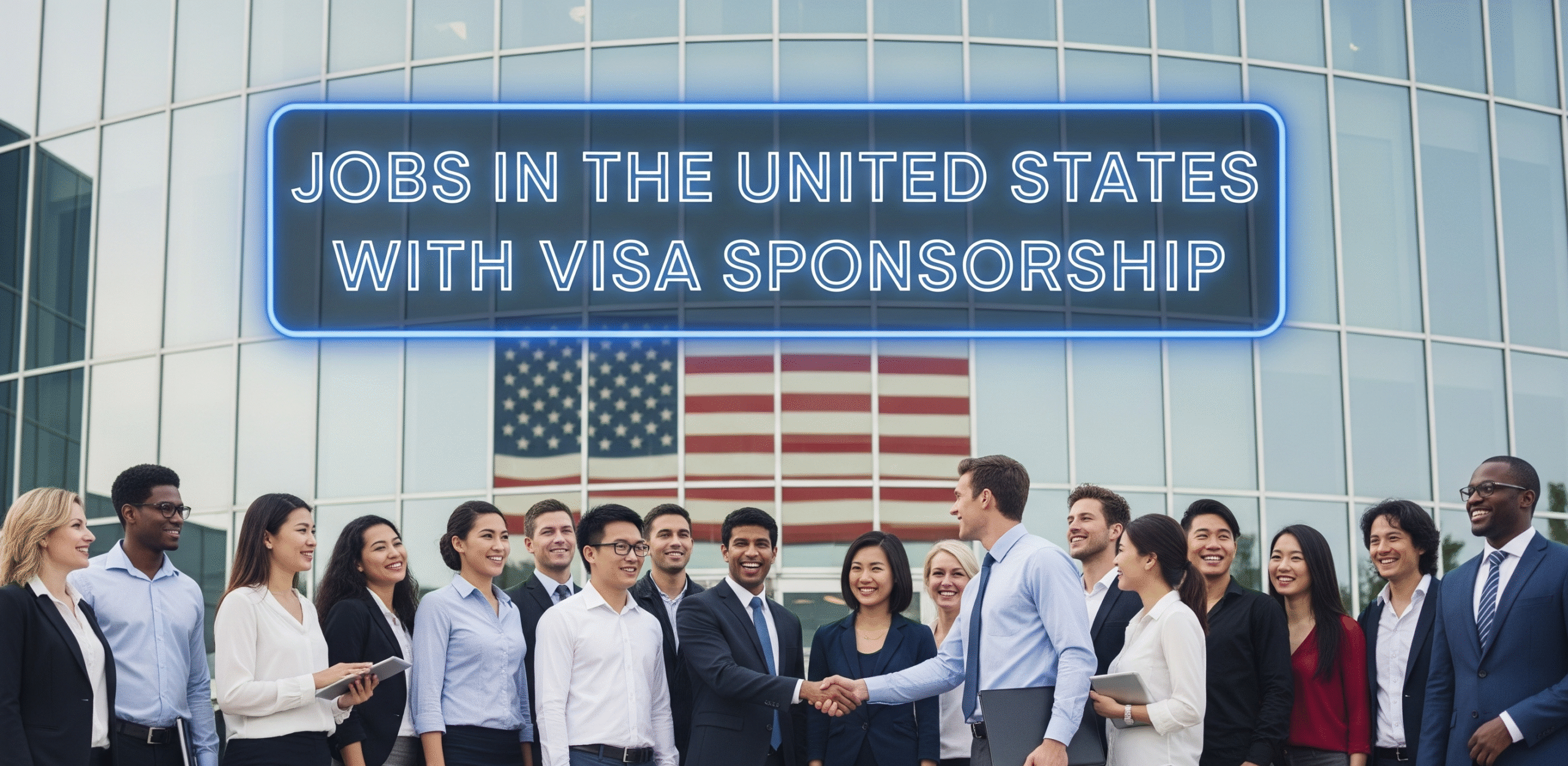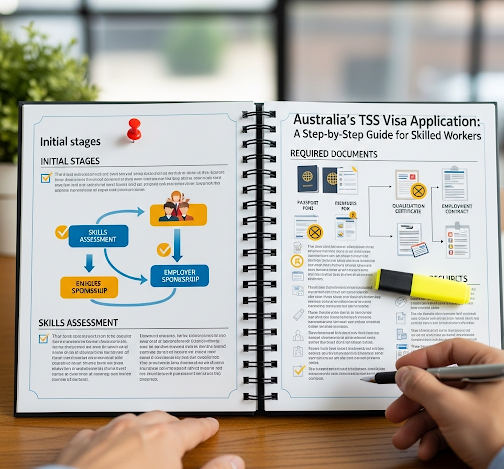Germany is Europe’s largest economy and one of the world’s leading destinations for skilled workers. With its strong industrial base, advanced technology sectors, and progressive immigration policies, the country consistently attracts international talent. For many foreign workers, the most reliable way to enter the German labor market is through visa sponsorship by an employer.
Employer sponsorship in Germany provides a pathway for qualified individuals to work legally, secure residence permits, and even pursue permanent residency. The system is particularly designed to address labor shortages in key industries. This article offers a comprehensive guide to jobs in Germany with free visa sponsorship, covering immigration pathways, high-demand sectors, major sponsoring employers, and practical steps to land these roles.
Understanding Visa Sponsorship in Germany
In Germany, visa sponsorship means that a company hires a foreign national and supports them in obtaining the appropriate work and residence permits. The employer provides contracts, proof of labor market need, and often pays related fees.
Germany’s immigration framework makes it easier for employers to sponsor skilled professionals, especially in shortage occupations. Unlike some countries, where sponsorship is limited or capped, Germany actively encourages employers to bring in international talent.
The most common sponsored visa types include:
- EU Blue Card: For highly qualified professionals, particularly in science, technology, engineering, and mathematics (STEM). Requires a job offer with a minimum salary threshold.
- General Work Visa: For skilled professionals in shortage occupations. Sponsorship is often provided by the employer.
- Job Seeker Visa (leading to sponsorship): While not initially sponsored, once a candidate finds an employer, sponsorship becomes part of the process.
- Apprenticeship and Trainee Visas: Employers can sponsor young workers for vocational training in Germany.
When employers advertise “free visa sponsorship,” they typically mean covering application fees, providing assistance with relocation, and in some cases, offering financial support for travel and settlement.
Immigration Pathways That Involve Sponsorship
Germany provides several immigration routes connected to employer sponsorship:
- EU Blue Card
Designed for highly skilled workers, especially in IT, medicine, and engineering. Employers provide contracts that form the basis of the visa application. - Work Visa for Qualified Professionals
For non-EU workers in recognized professions. Employers sponsor and assist in the residence permit process. - Shortage Occupation Sponsorship
Jobs on the shortage occupation list—such as nursing, IT, and skilled trades—are more likely to come with sponsorship. - Apprenticeship Programs
Many German companies sponsor vocational training for international youth, especially in trades and hospitality.
Industries With High Demand for Sponsored Workers
Germany’s economy is diverse, but certain sectors are particularly reliant on foreign workers. These industries frequently offer visa sponsorship.
1. Information Technology (IT) and Digitalization
Germany is undergoing rapid digital transformation. Software developers, cybersecurity experts, data scientists, and IT consultants are in demand. Many German firms actively sponsor foreign IT professionals, with Berlin, Munich, and Hamburg serving as key hubs.
2. Engineering and Manufacturing
As home to global brands like BMW, Siemens, Bosch, and Volkswagen, Germany’s engineering sector is world-class. Mechanical, electrical, and automotive engineers are often hired with employer sponsorship.
3. Healthcare and Nursing
Germany faces a significant shortage of healthcare workers. Hospitals, clinics, and nursing homes frequently sponsor foreign nurses, doctors, and elderly-care specialists. Language skills are required, but employers often provide support with integration.
4. Skilled Trades
Germany’s apprenticeship system shows a shortage of electricians, plumbers, carpenters, and welders. Many companies sponsor workers in trades, especially in regional areas.
5. Logistics and Transport
Truck drivers, warehouse staff, and logistics managers are in demand. Employers often sponsor foreign workers in logistics to keep supply chains running.
6. Hospitality and Tourism
Hotels, restaurants, and catering services hire cooks, chefs, and service staff. While not as high-paying as IT or engineering, these jobs often include sponsorship for non-EU workers.
7. Research and Academia
Germany invests heavily in innovation and science. Universities, research centers, and laboratories sponsor international researchers and postgraduates.
Companies Known to Sponsor Foreign Workers
Several German employers are known for hiring and sponsoring international talent. Examples include:
- Technology and IT: SAP, Deutsche Telekom, Zalando, Delivery Hero.
- Engineering and Manufacturing: BMW, Volkswagen, Siemens, Bosch, Daimler.
- Healthcare: Charité University Hospital, Helios Kliniken, regional health networks.
- Logistics: DHL, DB Schenker, Kühne + Nagel.
- Hospitality: Marriott Germany, AccorHotels, local restaurant groups.
- Research and Academia: Max Planck Institutes, Fraunhofer Society, German universities.
Large firms and multinational corporations typically have more resources to handle visa sponsorship efficiently.
The Reality of “Free” Visa Sponsorship
While many employers in Germany assist with visas, “free” sponsorship rarely means every expense is covered. Generally, employers cover:
- Visa application and government processing fees
- Legal and documentation costs
- Relocation assistance (flights, temporary housing, orientation)
- Language training in some healthcare and vocational roles
Workers are often responsible for:
- Costs of bringing family members
- Long-term housing expenses
- Additional integration courses or certifications
- Recognition of qualifications (when required)
It is essential to clarify with the employer what their sponsorship package includes before signing contracts.
How to Find Visa-Sponsored Jobs in Germany
Finding a visa-sponsored job in Germany requires targeted preparation. Here are practical steps:
- Research shortage occupations: Focus on professions where Germany has critical labor needs.
- Use official job portals: Websites like Make It In Germany, EURES, and Bundesagentur für Arbeit list sponsorship jobs.
- Tailor your CV: Format it in the German style—clear, concise, with detailed education and work history.
- Highlight language skills: Even basic German helps, although many IT and research roles accept English.
- Network: Attend industry events, use LinkedIn, and join professional associations.
- Target large employers: Multinational corporations and hospitals are more likely to sponsor foreign workers.
Challenges of Visa Sponsorship in Germany
While employer sponsorship is common, it comes with challenges:
- Language requirements: Most roles, especially in healthcare, require German proficiency (B1–B2).
- Recognition of qualifications: Certain professions (e.g., doctors, teachers) require official recognition.
- Processing times: Visa and residence permits can take months.
- Competition: Skilled jobs are sought after by workers from across the globe.
- Regional restrictions: Some sponsorships may tie workers to specific regions or employers.
- Cultural adaptation: Adjusting to Germany’s work culture and bureaucracy can take time.
Regional Differences in Sponsorship Opportunities
Job sponsorship opportunities in Germany vary by region:
- Berlin: Strong in startups, IT, and creative industries.
- Munich: Technology, automotive, and finance dominate.
- Frankfurt: Banking, finance, and international trade.
- Hamburg: Logistics, shipping, and aviation.
- Rural regions: Healthcare, nursing, and skilled trades shortages create more sponsorship chances.
Workers willing to relocate outside the major cities often find faster sponsorship opportunities.
How to Improve Your Chances of Getting Sponsored
To maximize your chances of success:
- Obtain qualifications in shortage fields (IT, healthcare, engineering).
- Demonstrate German language skills (even basic certification helps).
- Be flexible about location and willing to work in regional areas.
- Prepare for interviews in both English and German.
- Highlight international experience and adaptability.
- Stay updated on changes to Germany’s immigration rules, especially regarding the EU Blue Card.
Conclusion
Germany is one of the most promising destinations for international workers seeking jobs with visa sponsorship. From IT and engineering to healthcare, logistics, and skilled trades, employers across the country actively seek foreign talent to fill critical labor shortages.
While “free” sponsorship often means partial rather than complete coverage of costs, many German employers assist with visa applications, relocation, and even integration support. With the right qualifications, preparation, and openness to learning German, international workers can build rewarding careers in Europe’s strongest economy.
For those seeking stability, growth, and a path to permanent residency, visa-sponsored jobs in Germany provide a gateway to both professional success and personal fulfillment.




